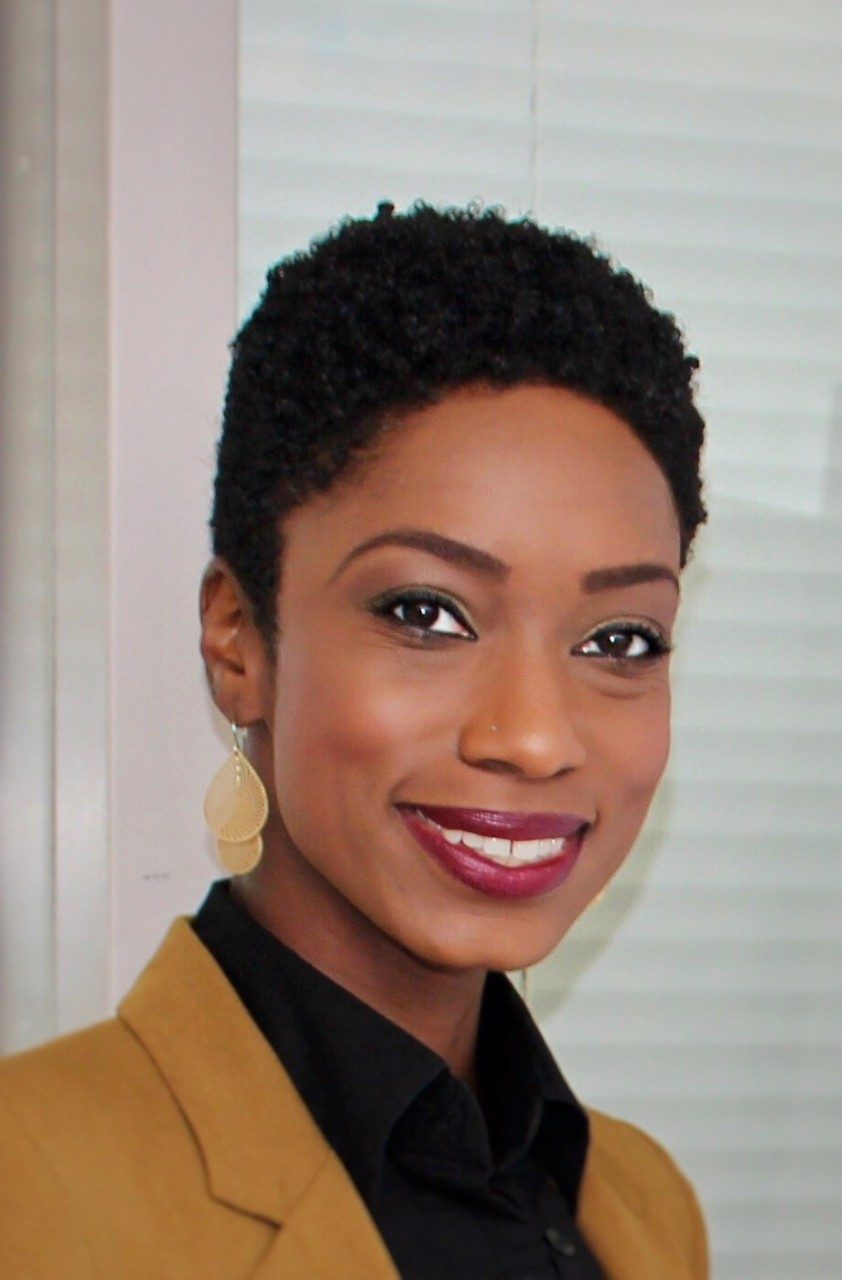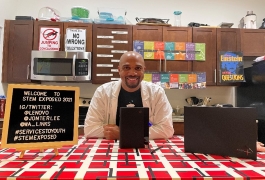Career Profile: Cosmetic Chemist Amber Evans
Dr. Amber O. Evans
B.S. Chemistry, North Carolina Agricultural & Technical State University
Ph.D., Pharmaceutical Sciences - Cosmetic Science emphasis, University of Cincinnati
Amber Evans received her Ph.D. in pharmaceutical sciences, with an emphasis on cosmetic science, in 2011. After graduating and taking a brief break from science, she applied to a generic postdoctoral position at BASF and waited for a response. When that seemed to fail, she took a more assertive approach. “I reached out to a BASF employee and industry expert to express my interest in career opportunities in personal care R&D at BASF via e-mail, and we remained in occasional contact over the following months,” she says. “He contacted me when a position opened and invited me to interview.”
Evans now works for BASF Corporation in Tarrytown, NY, developing technologies for personal care market segments, such as hair and oral care. This includes ingredient technologies that can deliver performance effects or functionality in products, and methodologies for evaluating product performance; in other words, she influences the consumer experience with personal care and beauty products. As a mentor, active member of the Society of Cosmetic Chemists (SCC), peer reviewer for the Journal of Cosmetic Science, and member of the Advisory Board for the University of Cincinnati Cosmetic Science Program, Dr. Evans is dedicated to influencing the progression of the cosmetic and personal care field both inside and outside of the lab.

What do you like most about this job?
As a scientist in the cosmetic and personal care industry, having the power to apply science to making consumers look and feel good is exciting. I can link my academic background and personal interest in cosmetics and personal care. For example, I am currently leading the development of a biosurfactant technology; it could potentially offer a natural, multifunctional solution for hair, skin, and oral care products. This project is exciting because it is the result of proactive technology scouting across the company and in line with market and customer demand. Aligning consumer need, science and business impact is an interesting, challenging and rewarding experience.
Did you know what you wanted to do when you were in college? How did you decide that cosmetic science was the career you wanted to pursue?
While a career in a STEM field was my goal, narrowing down the specific area within chemistry that would be suitable for a career was not as straightforward. My career interests changed each time I took a different chemistry class in college. They ranged from utilizing analytical chemistry in forensics to leveraging organic and medicinal chemistry to synthesizing drugs to “something” within green chemistry.
I decided on cosmetic science because it is an exciting field that combines multiple aspects of chemistry, promotes positive self-image and care, and is a relatable science with great impact and reach. I also considered the emotional impact of my future. While careers in forensics and medicinal chemistry could certainly be impactful, I realized that spending nearly the rest of my life exposed to topics like crime and sickness might not be a good fit for me. I was fascinated with hair and hair and skin products when I was younger but was unaware that it could be a career until late college. When I discovered I could build a career using science to improve things people use every day, I began planning how to prepare for and attain this.
What is the most interesting or most memorable project you’ve worked on?
My dissertation. As a graduate student in the cosmetic science program at University of Cincinnati, the country’s first advanced degree program with a cosmetic science focus and the only Ph.D. program, I had the pleasure of working on a project with direct relevance to my planned career path. It was challenging, but I learned a lot and loved every bit of it!
The project focused on identifying the factors that influence the uptake of water hardness ions (calcium and magnesium) by human hair, measuring the impact of that uptake on hair properties, and evaluating technologies related to controlling this interaction. The work was a comprehensive study that included research, physical and chemical analyses of hair, and experience with consumers and market insight. This could lead to the development of products that help consumers better care for their hair. I completed the project in an industrial setting, so I was also exposed to the business of cosmetics and personal care and inspired by professional scientists.
How do you balance your career and personal life?
Maintaining a good work-life balance is very important to me. I set rules for myself, such as don’t send e-mails outside of standard office hours, an effort that respects my own work-life balance as well as that of my colleagues. I try to manage my time in a way that allows for work to be completed on site. Of course, there are deviations from this occasionally, but it is within reason. I also happily use my full allotment of vacation days (mostly for travel), because personal growth is just as important as professional growth, and being overworked can be counterproductive and unhealthy.
While my job at BASF is not demanding in a way that impacts my personal life, I am voluntarily active in the cosmetic and personal care industry and occasionally in mentoring younger scientists. I mainly do this during my personal time, and while it can get a little hectic depending on the commitment, deadline, etc., these efforts keep me engaged and motivated, and I am happy to be of service.
What's the best career advice you've received?
“Just go for it.” It sounds simple, but this phrase of reassurance is powerful. Sometimes we can be barriers to our own success by allowing self-doubt and assumptions to manifest. There have been times where potential opportunities would not have been available to me had I not the courage and self-confidence to “just go for it.” It can be as simple as being transparent about intentions or asking about or pursuing something.
Do you have any advice for undergraduate students studying chemistry?
When considering your future career, take time to think of where you want to use your knowledge to impact the world and what it is that you genuinely enjoy. Be proactive! Set goals, identify resources, and execute. Seek opportunities for exposure to your areas of interest to better understand what that career path entails. This can be achieved by interning, shadowing, attending educational events on various topics, and networking with professionals. Most professionals are happy to support you!



